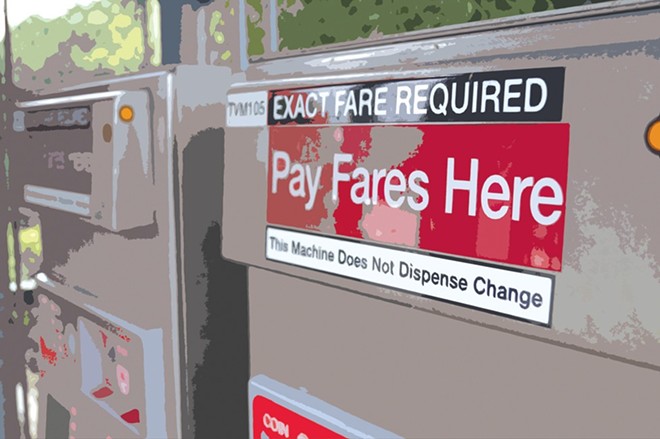Cleveland to Reduce Fare Evasion Penalties, But Transit Activists Say Ordinance Doesn't Go Far Enough
After a few years on the shelf, legislation amending Cleveland's RTA fare evasion ordinance will likely be introduced at Cleveland City Council's Monday evening meeting.
But the the local transit advocacy organization Clevelanders for Public Transit argues that the amendment, which would reduce the penalty for fare evasion to $25 from a maximum of $250 and 30 days in jail, doesn't go far enough.
"Under the proposed legislation, not paying a fare remains a crime and that remains unjust," CPT said in a statement on the proposed amendment. "While people could no longer be thrown in jail for failing to pay for a transit fare, they still face the possibility of exorbitant court costs and other collateral consequences of a criminal conviction."
CPT noted that when Councilman Kerry McCormack first drafted the legislation in 2019, it included protections against these collateral consequences. Among other things, it suspended court costs and ensured that a conviction wouldn't have to be reported on a job application. The new amendment fails to include these provisions.
Additional sections of the ordinance also remain intact, including those that uphold the criminality of eating or drinking in prohibited areas and listening to music without headphones. CPT believes that these actions should not be considered crimes either.
It was CPT's advocacy that propelled the recent action on this amendment. For 12 straight weeks, members and allies of the organization offered public comment at Cleveland City Council meetings, urging council to decriminalize fare evasion and echoing the message that McCormack delivered in 2019: that the penalty for avoiding fares on public transit should be the equivalent of a parking ticket.
McCormack's preference in 2019, he told Scene, was to reclassify fare evasion as a civil, rather than criminal, offense, but he said he would settle for the reduced financial penalty if there was pushback from the state.
Under state law, fare evasion will still carry maximum penalties of $250 and 30 days in jail, which is why CPT is calling for a memorandum of understanding between RTA Police and the City of Cleveland, to ensure that riders will only be cited under the amended Cleveland ordinance.
The legislation is sponsored by Councilmen Kerry McCormack, Kevin Conwell and Anthony Hairston. It is also sponsored by Mayor Justin Bibb himself, who vowed to tackle fare evasion when he served as a member of the RTA Board of Trustees.
***
Sign up for Scene's weekly newsletters to get the latest on Cleveland news, things to do and places to eat delivered right to your inbox.


